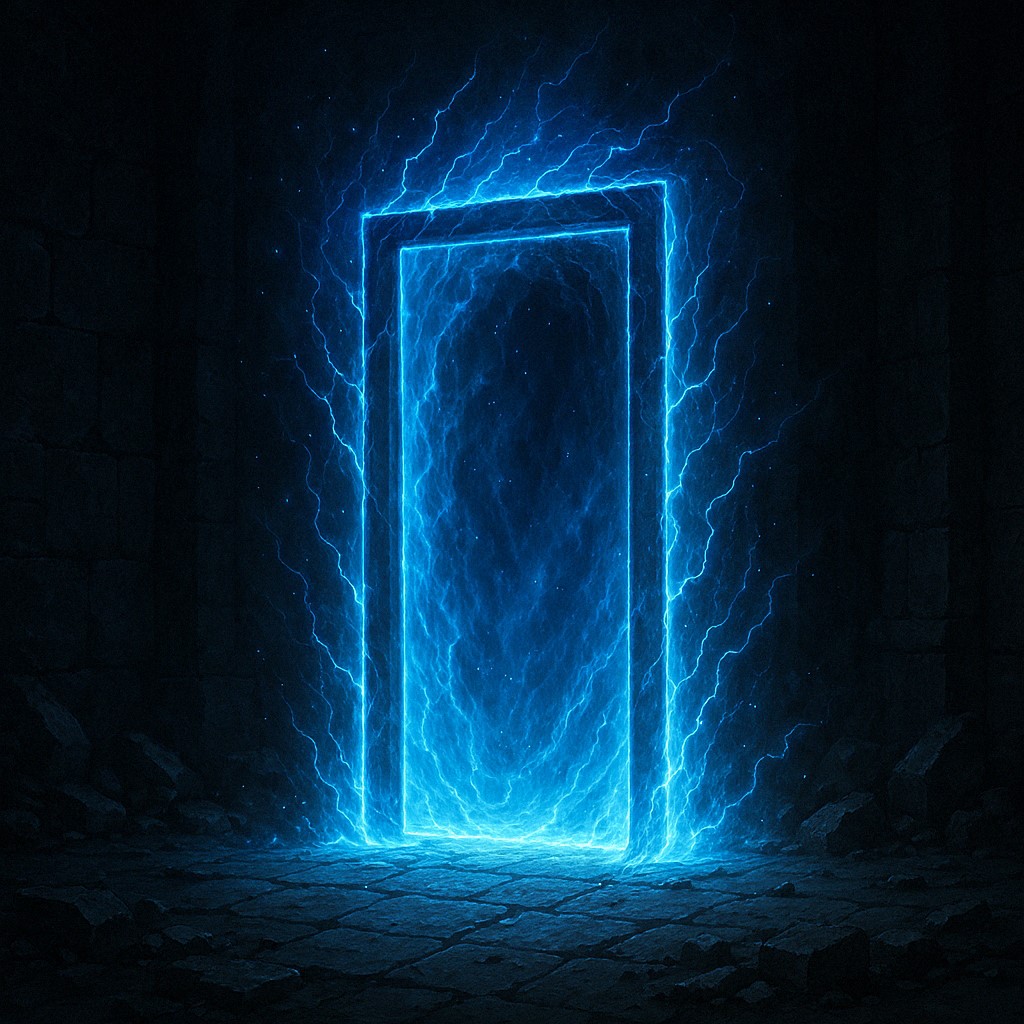Gate (spell)
Gate is a spell that opens a physical portal between the Prime Material Plane and another Plane of Existence, allowing passage in either direction. Once created, the gate draws immediate planar attention, causing a ripple that ensures the arrival of an intelligent being within 3–12 rounds. The caster has no control over what may arrive and no influence over its intent — the gate's presence alone is sufficient to provoke investigation.
| Range | self |
| Duration | permanent; see text |
| Area of Effect | portal up to 100 sq.ft. |
| Casting Time | 4 rounds |
| Saving Throw | none |
| Level | cleric (7th) |
Contents
This risk can be avoided if the caster uses the gate immediately, stepping through and closing it behind them before anything emerges. A gate remains open for as long as the caster wills it, but only one may exist at a time. If a new gate is opened while another is active, the previous gate vanishes instantly, severing the connection and leaving anything still on the far side isolated or stranded.
The gate may be created at any orientation — upright like a doorway, flat upon the ground or set at any angle the caster chooses. Its size is likewise variable, which may seem useful in limiting the passage of large creatures. However, many extraplanar beings possess the ability to compress, contort or transform their forms to pass through even the narrowest opening, slipping in as mist, shadow or flame. Size and shape, therefore, offer no reliable means of restricting entry.
Entrants
Virtually any creature may possibly step through the gate, including heroes, demi-gods, titans, angels, demons and devils of all sorts — indeed, any supernatural being of any kind. It's only natural that those creatures able to detect the ripple that the gate creates on the other side would be extraordinarily powerful. Some might interpret the opening of the gate as an opportunity, while others may joy at the opportunity to enter and wreak havoc.
The caster has no binding power over what emerges, so that negotiation, combat, deception or evasion is sure to occur in some fashion. In rare cases (1 in 20), multiple beings may emerge at the same time. If the gate is left open, a new creature will emerge each day, increasing the risk that something truly hideous will come through.
Purpose
The clear advantage of the spell lies in its ability to bypass the hazards of the Astral Expanse, allowing direct travel to another plane without delay or diversion. The danger comes not from the journey itself, but from hesitation — if the gate must be held open for too long to ensure a full party passage, the risk of intrusion increases sharply. One strategy is for a trusted member of the group to pass through first and remain stationed on the far side, ready to confront or delay any entity that attempts to cross before the gate can be closed.
Because the nature of what emerges is strongly influenced by the destination plane, it is impractical to define a fixed table of encounters. However, a general guide may be used: the dungeon master might roll a d10, with results of 1–4 representing mundane or familiar creatures native to the Prime Material; results of 5–7 suggesting lesser supernatural beings such as demons, angels or entities of intermediate power; and 8–9 introducing catastrophic threats like shoggoths or juggernauts. A result of 10 may indicate the arrival of a creature of demi-god status or greater. Some entrants, recognising the party's power, may propose bargains or service in exchange for freedom or favour. Others may view the gate as an opportunity to invade, destroy or impose dominion — particularly beings of significant will or ego.
In any case, the arrival of a being through the gate may serve as a potent disruption in an otherwise untenable situation, offering the party a narrow opportunity to escape. The sudden intrusion of a powerful outsider can shift the balance of power, particularly if the newcomer's aims or nature are incompatible with the threat already present. For example, opening the gate in the presence of a beholder and holding the line just long enough for something to emerge would almost certainly provoke an immediate clash between the beholder and the outsider, allowing the party to withdraw amidst the chaos.
